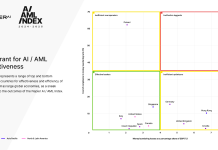In the realm of financial crime investigation, government officials are inundated with a vast amount of data that demands meticulous scrutiny. Available databases are packed with critical data on beneficial ownership, corporate structures, and various risk indicators, such as those associated with shell companies and financial performance.
According to Moody’s, however, the vastness of these global databases poses a risk of investigators losing their way amidst the information overload.
Despite the richness of data, the challenge often lies in its interpretation—different data points can suggest numerous narratives, requiring significant resources and expertise to parse effectively. Investigators, therefore, require rapid, precise tools to refine their research, maintain focus on their digital leads, and extract the necessary insights and evidence.
Tailored solutions like Moody’s Investigation Tool are pivotal in this context. This platform merges open-source intelligence with privileged internal data to generate actionable insights, tracing the money trail in particular instances and the individuals involved in criminal activities. It’s adaptable to various investigative needs, applicable in cases ranging from sanctions evasion and cyberattack prevention to fraud investigation and tax evasion.
The 2023 State of Tax Justice report highlights a staggering annual loss of $480bn due to global tax abuse, underscoring the urgent need for effective tax recovery strategies to bolster government finances, especially amid widespread budget deficits.
In tax evasion scenarios, the window to act is narrow, given the complex and sophisticated financial networks involved. The rapid movement of illicit funds—whether through offshore accounts, shell companies, or subsidiary organizations—makes recovery efforts formidable.
The European Commission reports that over 60% of criminal networks in the EU engage in corruption, with more than 80% using legitimate businesses as fronts, yet less than 1% of criminal assets are confiscated. Enhancing recovery rates could significantly alleviate fiscal pressures on governments.
With digital modes of crime such as online extortion and ransomware offering high returns at lower risks compared to physical crimes, criminals are increasingly operating in the digital realm. This shift necessitates that law enforcement adapt by integrating modern technology and expertise to stay ahead of criminal enterprises.
Platforms like Moody’s Investigation Tool, which specialize in filtering and exporting pertinent information, are invaluable. They are designed to reveal connections between individuals and entities, identifying data indicative of financial crime risks. Such tools enable investigators to pinpoint relevant information quickly, aiding in the assembly of substantial evidence for legal proceedings.
Incorporating diverse data sources—from company data and sanctions risks to adverse media and social media footprints—investigators can gather robust evidence to pursue and prosecute criminal entities effectively. This focus not only prevents investigators from being overwhelmed by data but also enhances their ability to make significant recoveries, potentially transforming the landscape of financial crime investigation.
Copyright © 2024 RegTech Analyst
Copyright © 2018 RegTech Analyst






